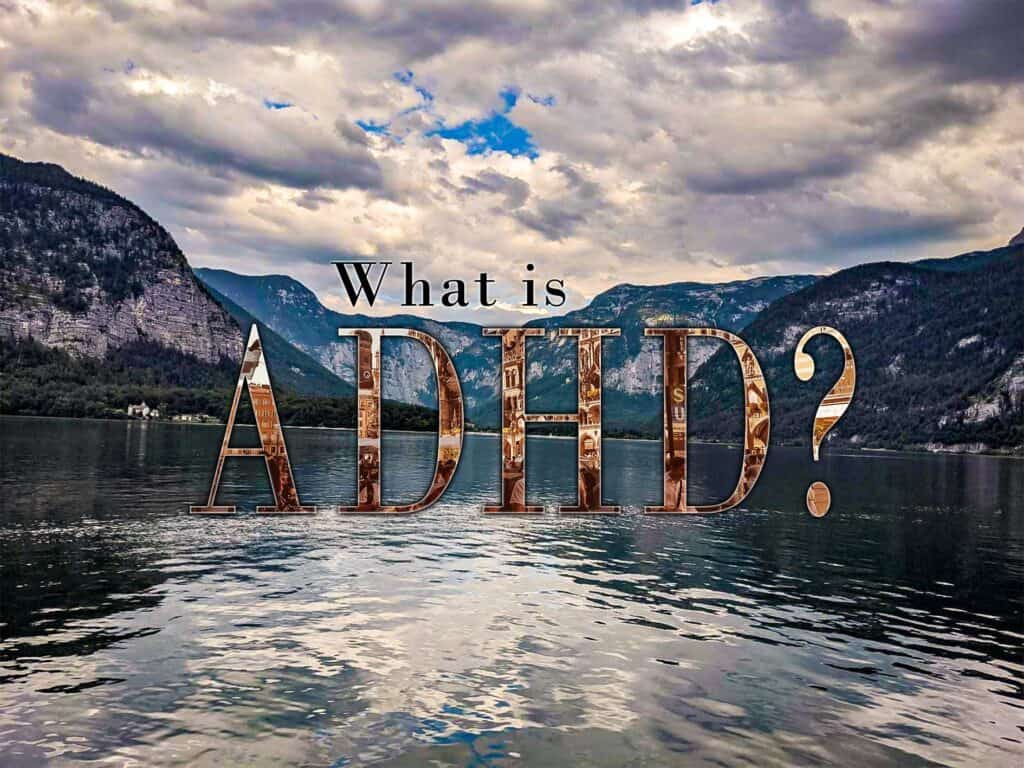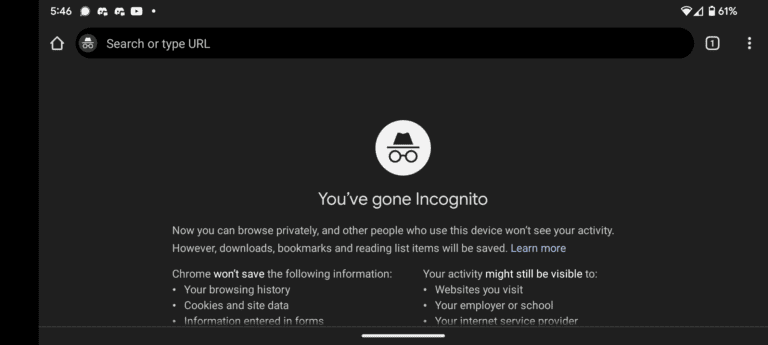Contents of Post

This was hard for me to write. Yet I wanted to explain why I have been much less active in recent months. Something I am sorry for. I hinted a bit last week when I was doing our yearly review, saying I would talk about it more, so I shall. Ugh, I don’t even know where to start honestly. I guess the best place is just to tell you that I have ADHD. Really bad ADHD. It’s something that has affected me my entire life without my even realizing it.
Yet before I can really explain my situation and how I took time off to focus on bettering my mental health and dealing with my ADHD I have to clear up a lot of stuff about ADHD in general. So let’s start there.
*Disclaimer* I am not a clinical psychologist or psychiatrist. All Information is taken from official sources such as the DSM-5, Dr.Russel Barkley, ADDitude, Healthline.com, CDC.gov, health.ucdavis.edu, Dr.Tom Brown, and other psychologists and psychiatrists I follow. Sources will be at the end before I wrap things up for this week.
Due to my ADHD, or maybe just because of who I am, I tend to do extensive research into things that interest me and understanding how I work is one of those things. Countless hours have gone into this article to make it as great as possible for you.
The Misconceptions And Myths Of ADHD
I figured the misconceptions and myths surrounding ADHD would be a good place to start since this is something that I’ve been experiencing my entire life, but it has been much more prevalent recently. The misconceptions and myths surrounding ADHD are very damaging. Not only to the people with it but also to the relationships you may have with these people.
This is by no means an extensive list of the misconceptions and myths surrounding ADHD. If I tracked down every single one this would probably be five to ten thousand words longer.
ADHD Isn’t A Real Disorder
This is something that has been said about almost every mental disorder. It’s a very damaging position to take. The reason I have seen most people who have this viewpoint say this is due to some of the following myths and misconceptions.
However, it is absolutely a real disorder. It’s in the DSM-5 (Diagnosis and Statistical Manual of Mental Disorders) as well as previous iterations of the DSM. As we learn more with more research and updates to technology we update our understanding of these disorders.
Everyone Has These Problems Sometimes
Yes! A lot of the symptoms of ADHD, such as lack of motivation and difficulty concentrating on something, are common things that people struggle with sometimes.
The differing factors are that for most people these issues are things that can be pushed through and aren’t things that are complete impairments to their daily lives. People who do have ADHD tend to have these issues be anywhere from a small impairment to a complete and utter destructive force in their lives.
ADHD Isn’t A Big Deal
Maybe to you, it isn’t. Yet to people with ADHD, it can be an oppressive and domineering part of them. To most, if not all, it’s not a big deal; it’s a huge deal. You’re more than welcome to your opinion, but don’t be a dick about it.
People With ADHD Just Need To Try Harder
I have heard this directed to me so many times in my life. I’ll try really hard and will fail something and get told, “Oh you just need to try harder”, “It’s not that hard, just do it”, “You aren’t doing enough”, and “You have so much potential. You’re just not living up to it. If you were to try harder you could do so much.”
It hurts. It kills. I’ll try harder, as hard as I possibly can, and I’ll still fail. That’s when I either hear the same thing or something even harsher. It sends people with ADHD into a shame spiral. We already feel shame from the failure due to the hypersensitivity and RSD (rejection sensitive dysphoria) that when it gets piled on by others it sends us spiralling. We are already beating ourselves up.
Hearing this makes it worse. It’s like telling someone who is in a wheelchair to “just walk”. They want to and I’m sure they try as hard as they can, but it just doesn’t work.
He/She Can Focus And Concentrate On Something They Find Interesting For Hours (I.E. Videogames, Movies, etc)! They Can’t Have ADHD
People with ADHD are lacking dopamine and norepinephrine receptors in their brains. Not to mention that more and more ADHD specialists are saying that ADHD has been misnamed. ADHD (Attention Deficit Hyperactivity Disorder) is in fact not an attention disorder, but I’ll explain that more under “What Is ADHD?”
The easiest way to explain this is that things that provide a large amount of dopamine tend to be something that will easily keep ADHD people’s attention. It could also throw the person into something called “hyperfocus” where the whole world melts away as their focus is kept on one thing.
People With ADHD Just Don’t Care Enough And That’s Why They Always Forget Things, Are Late, Or Never Listen
This isn’t true. We care. We care so very much. Yet just because we have good intentions doesn’t mean that we can control our disorder. We try to, but it’s fighting a losing battle. Especially unmedicated. Plus the lack of norepinephrine in the brain can cause major issues with time, focus, and maybe even memory.
People With ADHD Are Just Lazy and Unmotivated
This angers me. I have heard this from so many people. Including my parents, teachers, friends, in-laws, and even my wife. For a long time, I believed it myself. I’d have these random spurts of extreme motivation and productivity and when working a normal job I’d work my ass off so I must’ve just been lazy.
Little did I know that ADHD paralysis had me in its horrible clutches. ADHD paralysis is a real problem that a lot of people with ADHD have.
People with ADHD Are Stupid
Ah yes. Someone has a different brain and has huge problems concentrating on something that doesn’t interest them. They must be stupid.
I like to think I’m not stupid. I’m not the smartest person in the world, but I’m not stupid. Yet I’ve had many people tell me I am. It’s a harmful misconception.
As You Get Older You Outgrow ADHD
A lot of people believe this. Even some doctors still say it. However, most people with ADHD will say it got worse. How do you outgrow a difference in brain development? You can’t. Chances are most people just get better at managing it as they age and learn healthy, or unhealthy, coping mechanisms.
Who am I to say though? As I stated, I’m not a psychologist.
Medication Can Cure ADHD
It doesn’t. The ADHD brain develops and is wired differently and that’s not curable. Some people with ADHD need medication to be able to manage their disorder and others can live and manage without it. ADHD doesn’t manifest the same in every person because not every person is the same.
However, medication isn’t capable of “curing” a neurobiological difference. At least not of this type.
ADHD Medication Usage Can Cause Drug Problems Later In Life
The irony behind this is the exact opposite occurs. Studies have shown that people with ADHD that do need medication and don’t get the needed treatment tend to abuse drugs more.
The most likely cause is an attempt at self-medicating. This can be seen in the sheer amount (People with ADHD are two to three times more likely than their peers) of ADHDers that start smoking in middle adolescence. I’m one of them, having started smoking at a very young age. Nicotine is a stimulant and actually partially medicates ADHD. This is not a good or smart method of treatment and I do not recommend it.
Bad Parenting causes ADHD
I can’t personally speak to this since I had horrible parenting. However, it’s agreed among experts that bad parenting can’t cause brain differences. Well brain damage from abuse, but that’s another story.
ADHD Is Caused By Information Overload And Short Form Content
Another misconception that has a similar situation to the bad parenting thing. “Real ADHD is caused by fundamentally different neurobiology. Underactive functioning in the management system of the brain causes people living with ADHD to have difficulty prioritizing and sorting through stimuli.”
You Can’t Have ADHD, You’re Not Hyperactive!
Hyperactivity can manifest in different ways. Ways such as fidgeting, shaking legs, talking fast, being impatient, impulsivity, blurting out answers, trouble waiting their turn. It’s also possible that someone with ADHD might not manifest hyperactive tendencies at certain points throughout their lives.
There Are 3 Types Of ADHD
This is a common misconception, even stated by a lot of doctors. However, the DSM-5 states that people with ADHD will move through all the different stages at various points in their life. Therefore there aren’t three individual types, but one thing that can manifest in different ways depending on the person and their life.
The DSM-5 labels these as “Presentations”, not types as they are going off what is currently being presented at that moment of the person’s life. (Source)
People With ADHD Talk About It TOO MUCH. It’s Like It’s All They Care About.
Yeah, I get it. It can be frustrated or annoying hearing someone talk about something all the time. We get that you’ll never truly understand because you don’t and won’t have it. Yet, we want to share with you to help to accept the differences that come with people with ADHD. We are different than most people and (usually) don’t want to be a burden or annoyance. Since reading social cues is hard for most people with ADHD we don’t realize that doing so might itself be an annoyance.
Plus if you haven’t noticed we tend to just word vomit about whatever it is we are interested in. Since figuring out what’s going on with us is usually interesting to us it’s one of the things we word vomit about.
I find myself constantly clarifying that I didn’t see, know, realize or understand something due to my ADHD.
People With ADHD Just Use It As An Excuse
Just like people who wear glasses use their bad eyesight as an excuse as to why they can’t see properly and need glasses. It’s not an excuse. We want to do better… be better.
I have cried on multiple occasions about the fact that I would give up almost anything to be normal. To be able to function normally. Medication has helped me get a lot of the way there. I no longer feel like I am constantly drowning or treading water.
Yet let’s talk about what ADHD is so you maybe you can understand a bit about people with ADHD.
What Is Attention-Deficit Hyperactivity Disorder (ADHD)?
If you would like an exact psychological definition of ADHD you can read the DSM-5 here. Specifically pages 32 and 59-66 (Pdf pages 70 and 97-104)
One thing that is important to note is that ADHD is very likely to be a genetic trait that is passed down. It sucks I know.
According to ADDitudemag, “ADHD (attention deficit hyperactivity disorder) is a neurological disorder that impacts the parts of the brain that help us plan, focus on, and execute tasks. ADHD symptoms vary by sub-type — inattentive, hyperactive, or combined — and are often more difficult to diagnose in girls and adults… ADHD is a developmental impairment of the brain’s executive functions. People with ADHD have trouble with impulse control, focusing, and organization.”
Dr.Russell Barkley, a specialist in ADHD, states that ADHD is improperly labelled as ADHD as it is not a disorder of attention, but intention.
“ADHD is a performance disorder. A disorder of intention, not attention. It’s an executive function disorder (EF)…. It’s time blindness. You won’t be able to aim your behaviour toward the future to care for yourself as effectively as other people can…”
Dr. Barkley has done many talks on the subject of ADHD that are all over youtube. Most are several hours long, many of which I have watched. A lot can be boiled down to this clip though:
Dr Russell Barkley ADHD Intention Deficit Disorder
Common Symptoms of ADHD
According to ADDitudemag.com common symptoms of ADHD include:
- Inattention
- Lack of focus
- Poor time management
- Weak impulse control
- Exaggerated emotions
- Hyperfocus
- Hyperactivity
- Executive dysfunction
According to Mayoclinic.org, they include:
- Impulsiveness
- Disorganization and problems prioritizing
- Poor time management skills
- Problems focusing on a task
- Trouble multitasking
- Excessive activity or restlessness
- Poor planning
- Low frustration tolerance
- Frequent mood swings
- Problems following through and completing tasks
- Hot temper
- Trouble coping with stress
Other sources add more or go into more detail and elaborate on fatigue, sleeping problems, substance misuse and abuse, self-image issues and so much more. There is a lot to ADHD that people don’t realize.
However, we need to start somewhere so let’s start with executive functions.
Executive Functions
ADHD is an impairment of executive functions, but what are executive functions? If you just look on google you get a whole bunch of stuff.
Wikipedia states, “executive functions (collectively referred to as executive function and cognitive control) are a set of cognitive processes that are necessary for the cognitive control of behaviour: selecting and successfully monitoring behaviours that facilitate the attainment of chosen goals. Executive functions include basic cognitive processes such as attentional control, cognitive inhibition, inhibitory control, working memory, and cognitive flexibility. Higher-order executive functions require the simultaneous use of multiple basic executive functions and include planning and fluid intelligence (e.g., reasoning and problem-solving).”
Though as everyone knows that Wikipedia is not a reliable source of information and wouldn’t be accepted as a source in school due to anyone being able to edit and write anything they like let’s dig a little deeper.
Understood.org puts executive function into three categories. Working memory, cognitive flexibility, and inhibitory control.
Hillcenter.org takes it further by stating “Examples of executive function include adaptable thinking, planning, self-monitoring, self-control, working memory, time management, and organization. Executive function is activated in situations that require planning, error correction, step-by-step actions, technically difficult behaviour, and overcoming impulses”
Experts Defining Executive Function
Chadd.org goes over how two prominent ADHD researchers, Dr. Tom Brown, Ph.D. and Dr. Russel Barkley, Ph.D., define executive function.
According to Chadd.org, “Brown breaks executive functions down into six different “clusters.”
- Organizing, prioritizing and activating for tasks
- Focusing, sustaining and shifting attention to task
- Regulating alertness, sustaining effort and processing speed
- Managing frustration and modulating emotions
- Utilizing working memory and accessing recall
- Monitoring and self-regulating action”
And
“Barkley breaks executive functions down into four areas:
- Nonverbal working memory
- Internalization of Speech (verbal working memory)
- Self-regulation of affect/motivation/arousal
- Reconstitution (planning and generativity)”
However, Barkley goes into much further detail in an article he wrote for ADDitudemag.org, breaking it into more than 4. Specifically:
“1. Self-awareness: Simply put, this is self-directed attention.
2. Inhibition: Also known as self-restraint.
3. Non-Verbal Working Memory: The ability to hold things in your mind. Essentially, visual imagery — how well you can picture things mentally.
4. Verbal Working Memory: Self-speech, or internal speech. Most people think of this as their “inner monologue.”
5. Emotional Self-Regulation: The ability to take the previous four executive functions and use them to manipulate your own emotional state. This means learning to use words, images, and your own self-awareness to process and alter how we feel about things.
6. Self-motivation: How well you can motivate yourself to complete a task when there is no immediate external consequence.”
7. Planning and Problem Solving: Experts sometimes like to think of this as “self-play” — how we play with information in our minds to come up with new ways of doing something. By taking things apart and recombining them in different ways, we’re planning solutions to our problems.”
Yet going over executive function only covers so much. There is a lot more that needs to be explained. The following things aren’t an “always” thing, but a “is significantly more likely in people with ADHD than their ‘normal’ counterparts” thing.
Hypersensitivity
People with ADHD tend to be very hypersensitive. This can manifest emotionally, physically, or even both.
Physical stimuli hypersensitivity can be things such as sensitivity to lights, the feeling of textures and fabrics, touch, smells, sights, etc. This is by no means an extensive list. I for example have to feel everything before I buy it. If it doesn’t feel good or at least tolerable on my skin then I won’t use it.
Emotional stimuli are exactly what you think they are. I’m constantly being told that I’m “being dramatic”, “making too big a deal out of things”, or “very sensitive”. I am indeed very sensitive, but I’m not being dramatic or making too big a deal out of things. These things are a big deal to me and affect me greatly.
Emotional Dysregulation
Emotional Dysregulation is the inability to modulate or regulate emotions. It is very common and often regarded as one of the core symptoms of ADHD. Part of it may be due to hypersensitivity, but perhaps not all of it.
It tends to manifest in wild and irrational reactions to various things. Things such as a spouse suddenly screaming because they can’t find the remote or crying irrationally instead.
Essentially there’s a lack of connection in the brain of an ADHD person to the part of the brain that inhibits and controls emotion. This leads to reactions that don’t line up with the cause, huge struggles with calming themselves down when an emotion has taken hold, and even the appearance of a lack of care, concern, or understanding of others’ emotions.
With this, you will quite often see random outbreaks of anger and sadness. Yet you can’t forget the guilt and shame spirals that are quite common as well.
When paired with Alexithymia it gets even worse. At least in my experience.
Rejection Sensitive Dysphoria
Rejection sensitive dysphoria, or RSD, is an absolute fucking nightmare. Boiled down it’s an extreme emotional reaction, usually, a tremendous amount of pain, hurt, and shame, to any perceived rejection or failure.
To give a good example of this I’ll use the fact that I run Dungeons & Dragons for a bunch of people. People in my group, or even the entire group, have tended to cancel last minute or just not show up. Every time it happens it hurts me a lot. When no one shows up I tend to burst into tears or slide into a depressive state.
Yet it doesn’t even have to be that big. When they don’t respond to my texts in the group chat I start to feel rejected. With either thing, I go rapidly between “Am I not doing a good job?”, “Am I not doing enough?”, “Do they not appreciate all the effort I’m putting into this?”, “Am I not good enough?”, “Do they even want to play or talk to me?”, “What if they want to play, but just not with me?”, and so many other things. I spiral out of control.
The worst part is that logically I understand that they aren’t rejecting me. At least I don’t believe they are. Not intentionally at least. Yet logically understanding that doesn’t matter. The emotion hits me like Snowpiercer, 1001 cars long. I can’t escape it.
Alexithymia/Dyslexithymia
Alexithymia and Dyslexithymia aren’t necessarily core symptoms of ADHD. However, they are a lot more likely for people with ADHD than people without as some studies have shown that up to ~42% of people with ADHD had one or the other. The thing is that these are personality traits; not mental health disorders.
Alexithymia is essentially a difficulty identifying and describing emotions. Its core traits are difficulty identifying emotions, difficulty describing emotions, and a huge lean towards externally oriented thinking.
Dyslexithymia is basically not being able to properly name an emotion. It’s weird and harder to find information on than alexithymia. Think of dyslexia, but for emotions.
Just take a minute and imagine having all these emotions that you can’t identify or describe. Got that in your head? Ok now imagine you have huge difficulties regulating your emotions. How are you feeling? Wait you shouldn’t be able to tell me since you can’t identify or describe it properly. It’s a fucking nightmare, right?
This means properly expressing emotions, or even just expressing them in general, is very, very difficult and leads to a lot of problems. People can forgive a lot of things. Constant random emotional outbursts are not usually one of them.
ADHD Paralysis
ADHD paralysis is described by ADD.org as “ADHD paralysis happens when a person with ADHD is overwhelmed by their environment or the amount of information given. As a result, they freeze and aren’t able to think or function effectively. This makes it challenging for the individual to focus and complete their tasks—including urgent ones.
Also known as analysis paralysis, ADHD paralysis is a symptom of ADHD. Adults who experience this issue find it much harder to keep up with their commitments and complete necessary tasks at work, school, or home.”
The way I’ve always described it is a bit different though. I’ll be sitting there doing something. Maybe doom scrolling, perhaps watching something. It’s always different. I know I have stuff to do, but I’m still sitting there.
Externally it looks like I don’t give a shit. Internally I am screaming at myself, almost as if it was an out-of-body experience. I scream at myself to do something, to get up, to move, DO ANYTHING ELSE. JUST MOVE, GO, DO SOMETHING. Yet my body won’t respond and I just can’t make it. No matter how hard I try or how loud I scream nothing happens. I can’t make it happen.
Every time I hear someone say something along the lines of “Oh it’s easy. Just do it” I think about this. I think about it and I feel so fucking trapped and hopeless.
Oversharing
There really isn’t too much to say here. People with ADHD tend to way overshare. Many have a really hard time reading social cues and will just keep talking.
For myself, very few things have ever been off-limits to talk about. It’s bothered a lot of people. Hell, most of the things I’m going to write in the next few weeks are super oversharing. Most of you are strangers. I don’t need to explain myself to you all, but I don’t think I mind doing so and I believe that I want to.
Masking
Let’s talk about masking for a second. Masking is a very common thing that people with ADHD and Autism (and probably many other things) do.
So what is it? Well, it’s doing your best to hide the symptoms of your disorder so you can appear to be more regular or “normal”. It’s exhausting but yet a lot of people with ADHD tend to learn to do this naturally due to how people react to them.
Hell, that’s how I learnt to mask. My whole life I would hear stuff like, “Stop fidgeting”, “Pay better attention”, “Stop talking so fast”, “You’re too sensitive”, and so many other things. The more I heard these things the more I would try to hide or curb them. This led to a lot of people thinking I was inconsiderate, rude, uncaring, distant, unapproachable, etc, etc. I became stone cold and with all the other stuff I mentioned the only way I knew how to express myself was through anger.
Now I’m trying to learn how not to mask and it’s really hard. Years of hiding everything is not easy to just drop. Especially since I still hear these things. Even from the people who want me to stop masking. Years of carefully curating a personality for each person so that they would like me is hard to get rid of. Now I’m trying to figure out who I am and what my personality is and frankly, I don’t know.
I hope that one day I will get to meet the real me.
That aside those were some of the most common things that are part of ADHD. Part of ADHD. Yet there are a lot of things that can come with it.
Common Coexisting Conditions Likely With ADHD
Some of the more common coexisting conditions I will go into more and be able to give percentages based on statistics and studies that have been done. Others I might only have a sentence or two to say about them. I can’t speak to all of them as I don’t experience all of them. Thank god.
Anxiety
It’s estimated that half of the people with ADHD, give or take, also have anxiety. It tends to be either general anxiety, separation anxiety, or social anxiety. Maybe it could be considered a symptom at that point, who knows? Anxiety has been something I have struggled with almost my entire life.
Depression
Depression is another one of those pesky disorders that are estimated to be prevalent in about half of all people with ADHD. If I recall correctly the statistic that Dr. Russel Barkley gave in one of his talks is that 25% of people will actually have both. Lucky me; I’m one of them.
Oppositional Defiant Disorder
According to chADD.org: “Oppositional defiant disorder (ODD) refers to a recurrent pattern of negative, defiant, disobedient and hostile behaviour toward authority figures lasting at least six months. To be diagnosed with ODD four (or more) of the following symptoms must be present:
- often loses temper
- often argues with adults
- often actively defies or refuses to comply with adults’ requests or rules
- often deliberately annoys people
- often blames others for his or her mistakes or misbehaviour
- is often touchy or easily annoyed by others
- is often angry and resentful
- is often spiteful or vindictive.
These behaviours must be exhibited more frequently than in other children of the same age and must cause significant impairment in social, academic or occupational functioning to warrant the diagnosis.”
If you were to ask anyone who knew me when I was young they would 100% tell you that I had this. I was so angry, resentful, spiteful and vindictive, I always argued with people in authority, and I defied adults and their rules all the time and probably lost my temper more than most.
Even now I still struggle with some of these.
Conduct Disorder
According to UC Davis conduct disorder is “a repetitive and persistent pattern of behaviour in children and adolescents in which the rights of others or basic social rules are violated. The child or adolescent usually exhibits these behaviour patterns in a variety of settings—at home, at school, and in social situations—and they cause significant impairment in his or her social, academic, and family functioning. “
Chadd.org says “Conduct disorder (CD) involves more serious behaviours including aggression toward people or animals, destruction of property, lying, stealing and skipping school. The behaviours associated with CD are often described as delinquency. Children exhibiting these behaviours should receive a comprehensive evaluation.”
It’s estimated around 50% of teens with ADHD also have conduct disorder with a huge drop off as they get older.
Sleeping Problems
Around 25% of parents that have children with ADHD report their kids having sleeping problems. It gets a lot larger with adults with untreated ADHD.
I’ve had sleeping problems my whole life. It’s just been something I lived with.
Learning Disorders
ADHD is not a learning disorder in itself, but it can have many alongside it. ADHD being a learning disorder itself is a common misconception. 50% of children with ADHD also have a learning disorder. Compared to the 5% of kids without ADHD who have one, that’s an astronomical difference.
Autistic Spectrum Disorder
This is a rough one since there are a lot of overlaps between ADHD and ASD. About ⅓ of people with ADHD also have ASD.
Dyspraxia
I had to look this one up as I had no idea what it was. Dyspraxia is also known as developmental coordination disorder. It’s very uncommon at around 5% of people with ADHD, but it was still listed. People with this have trouble with coordination and are often referred to as clumsy
Epilepsy
This was news to me in my research for this. It’s apparently not too common coming in at around 14%. On the other side though about one in five adults with epilepsy have symptoms of ADHD.
Tourette’s Syndrome
Another one that’s not overly common. Yet it makes sense. People with ADHD tend to do something called “stimming”. Stimming is basically various “tics” and forms of fidgeting to create extra stimuli when the person is lacking stimuli. About 10% of people with ADHD have Tourette’s. Interestingly enough between 60-80% of people with Tourette’s have ADHD.
Bipolar Disorder
Bipolar is more common in Adults with ADHD than kids. It’s hard to tell as the estimated amount of people who have both is anywhere from 5.1 to 47.1 percent. It’s a hard thing to tell since there is a large amount of overlap between the two as well. Research suggests that 1 in 13 people with ADHD have BD where as up to 1 in 6 people with BD also have ADHD.
My doctor actually tested me for this. Thank god I don’t have it.
Obsessive Compulsive Disorder
Another one that is more common in Adults. More common than generally thought at around 30%. The comorbidity of these two disorders actually tend to enhance the symptoms of each other as well.
Also, another one that my doctor tested me for and that I’m glad I don’t have.
Personality Disorders
Other personality disorders such as Borderline Personality Disorder are also pretty common in adults with ADHD.
The list doesn’t end there either. Expanding into health issues and personal issues that aren’t necessarily mental health related. Things such as substance abuse, oral health, and interpersonal relationship problems are also huge concerns. That’s even according to the CDC!
My heart goes out to anyone who has ADHD. Especially if they have any co-existing conditions. I understand the pain and struggles as I have some of them myself. I can’t even imagine how much worse things would be for me if I had some of the more challenging ones. Therefore my heart really goes out to those people.
Sources:
Diagnosis and Statistical Manual of Mental Disorders Fifth Edition (DSM-5)
Several research papers
And many, many more
I am not a Ph.D. or Masters Degree student. Therefore I have not cited my research as one would. However, I wanted to cite some of my many sources so you knew I wasn’t just pulling shit out of my ass. Feel free to ask me for more or to read some of these yourself.
Final Thoughts
Part of the reason I decided to do endless hours of research to make this was due to the fact that there are people in my life who do perpetuate some of the myths and will argue with me about my own condition like they know better.
Initially, I was going to immediately launch into the story of my lifelong struggles with ADHD. However, the more I wrote, the longer this got. Eventually, my wife told me it was way too long and that no one would ever read everything. Therefore I decided it would be best to to split it up over a couple of weeks.
That being said I’m still unsure if I will be sharing the entire story. It goes incredibly deep into my personal life, puts a lot of people in a bad light, and puts me in the most vulnerable position I have ever been.
I’m not sure I want all that information about my life just put out there for the world to see. Especially after almost two decades of being very careful to not let personal information on the interwebs. Yet at the same time, it serves as context about the whole journey I’ve gone through to get where I am today.
So for now I’m not sure how I’ll handle it. However, I’ll keep writing it and decide when I’m finished. Until then I might put out a couple of normal posts. I’ve been considering doing a post about some of the coolest mental health related tattoos. That or the types of mental health tattoos.
We will see what happens. Whatever I decide I will be sure to update the Nomadic Inscribers emailing list when I have come to a conclusion.
Until next time stay authentic, stay Nomadic, and let the world inscribe itself upon you more than you inscribe yourself upon it.





2 responses
Welcome to the club, Jenson! I was diagnosed with adult ADHD about 16 years ago at age 47, and suddenly all the struggles i had throughout my entire childhood through to about age 30 made sense. Every report card said “Brian could do so much better if he would just pay attention” – seriously, every single one.
The good news is it’s pretty common for us ADHD people to figure out coping methods and mechanisms during our 20’s that allow us to function reasonably well – sometimes quite well, if we are lucky enough to find a vocation that plays to our strengths. So hang in there, things are likely to get easier. Anyway for what it’s worth I have really enjoyed getting to know you a little better and from what I’ve seen, I reckon you have a bright future in front of you.
Thanks, Brian. It’s crazy that you didn’t get diagnosed until 47. Did a lot change after that diagnosis?
I totally understand the report card thing. I’ve seen it so many times myself. Do you have any coping methods and Mechanisms you’d like to share? I’ve got a bunch of really weird ones myself like setting up purposeful distractions to make sure I do things I am supposed to do.
I really appreciate it. It’s not often I hear stuff like that. So thank you.